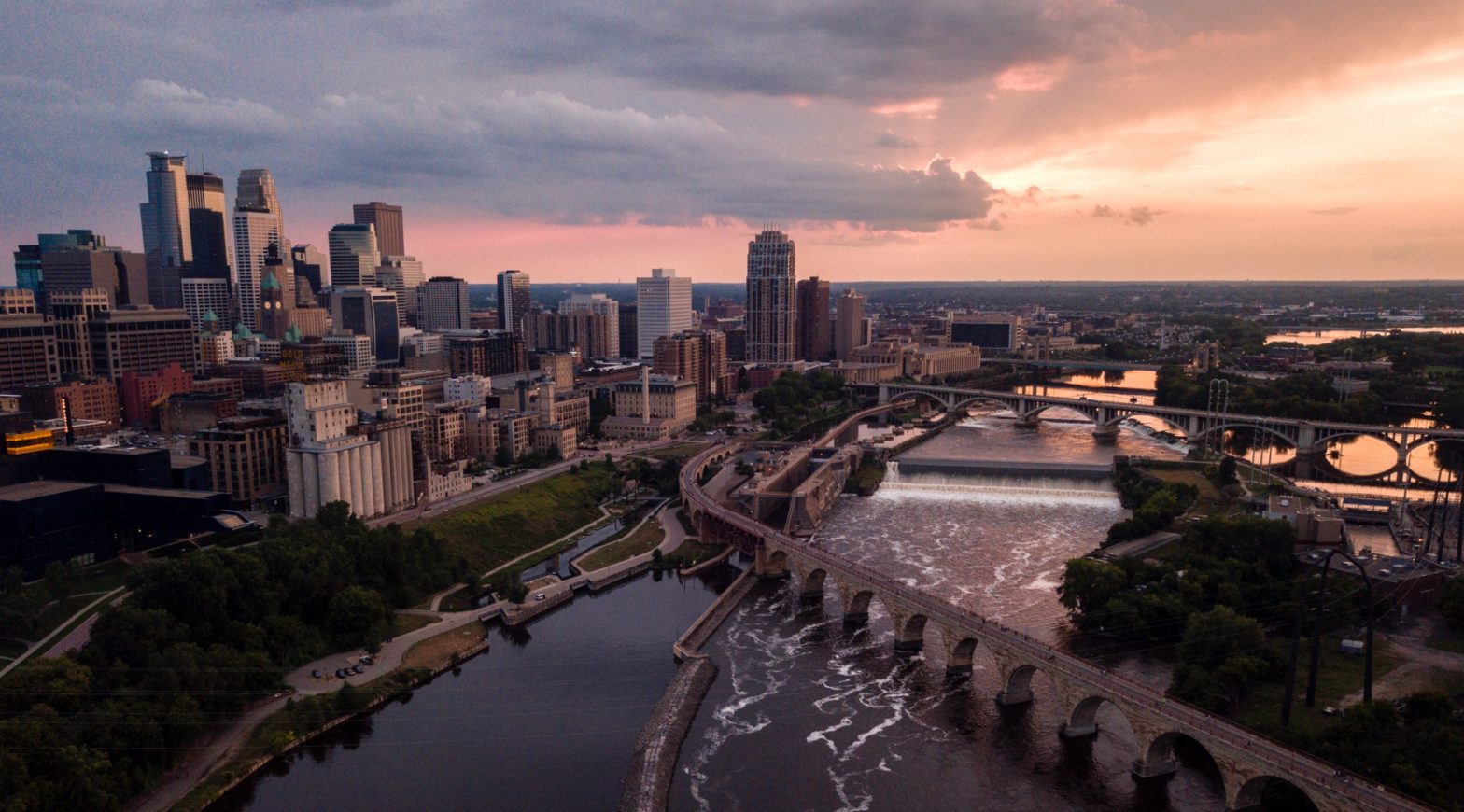
Photo: nicole-geri-unsplash
Minneapolis climate plan emphasises environmental justice
01 August 2023
by Christopher Carey
Minneapolis City Council has approved a Climate Equity Plan which aims to achieve carbon neutrality by 2050 through a range of measures including changes to building insulation and more energy-efficient homes.
“Climate work is about more than the environment,” the plan’s executive summary says. “It’s about people. It means we will lead with environmental justice. It reduces utility bills and increases green jobs. It’s planting trees and making neighbourhoods more walkable to create a healthier, more prosperous future.”
The climate plan calls for the insulation of 30,000 homes and apartments by 2030, with an emphasis on buildings in lower-income and traditionally disadvantaged parts of the city. The plan also aims to have renewable electricity supply the entire city by 2030, with funding from utility fee hikes expected to cover both endeavours.
“The Climate Equity Plan gives us the vision and aspirational targets based on science,” said deputy commissioner Patrick Hanlon, Minneapolis Health Department.
“We all need to work together as a community with an equity focus to reach these high and necessary goals.”
Community feedback
The city said community and stakeholder input was crucial in creating the final plan, and that it reached out to communities “that may not normally engage in climate planning”.
“We’ve heard from 10 different culturally based organisations and deepened our understanding of how they relate to the environment and climate work,” the executive summary said.
“We developed this plan with community organisers and met with Black, Indigenous, People of Colour and Immigrant (BIPOCI) communities throughout Minneapolis.”
During the public comment period (19 April 5-June), the Health Department received more than 1,000 responses with more than 1,800 comments.
Suggestions included creating a more aggressive timeline; creating bigger, more measurable and transparent goals; and showing which departments are accountable for carrying out the plan.
The top five areas of focus were: energy systems (24 percent), healthy homes (22 percent), transportation (14.5 percent), green buildings (9 percent), and green economy and workforce (8 percent).
To support a more equitable city, the plan will see investment in green job training, a reduction in outdoor and indoor air pollution, and a push to make green spaces “safe and accessible to all”.
Funding
The city’s Mayor Jacob Frey says the plan will be funded through the Climate Legacy Initiative (CLI), which was developed after “year-long conversations with community members, grassroots advocates, nonprofits, unions, utility companies, and business representatives”.
Through the CLI, an additional US$8-10 million will be added to climate action work each year, starting with the 2024 budget.
The funding will be raised via gas and electric utility franchise fees, which the city estimates will cost the average household US$8-12 per year.
The last time the city upped utility franchise fees was in 2017 with a US$3 million increase.
“One-third of Americans currently live under extreme heat advisories which means there is no time to waste when it comes to advancing our climate goals,” said Mayor Frey.
“This must be an all-in effort to reach our renewable energy goals because lives depend on it.
“We must think of ourselves not only as the mayors, council members, and advocates of our residents today, but as the mayors, council members, and advocates of those that are not here yet. This is about our collective future, and about acting today to protect it.”
Best practice
In establishing its plan, the city looked at other municipalities in the US and further afield for inspiration.
“We looked at numerous cities such as New York, Washington DC, San Francisco, Seattle, Vancouver, Sydney and others both nationally and internationally, including those, which along with Minneapolis, are members of The Carbon Neutral Cities Alliance (CNCA),” a spokesperson from Minneapolis City Council told Cities Today.
“In addition, we’ve learned a lot from smaller cities across the US such as Madison, WI; Ann Arbor, MI; and Indianapolis, IN through the Urban Sustainability Directors Network (USDN).”
While exact parameters have yet to be established, Minneapolis officials have said they want to avoid making the fee hikes regressive, and several have suggested the fee hikes for natural gas could increase more than electricity, since the low-cost fuel is increasingly more carbon-intensive.
Image:nicole-geri-unsplash







